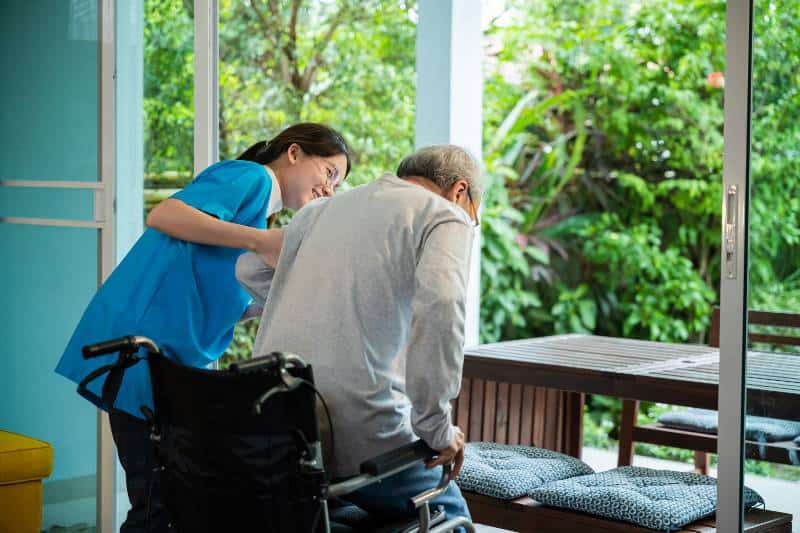Navigating Thailand’s Healthcare: Public vs. Private Hospitals
Thailand has an excellent healthcare system, which includes a universal coverage program that began in 2002. This program provides healthcare coverage to all citizens, and most Thais are covered under it. Civil servants and their families receive healthcare coverage from the civil service welfare system. Private employees are often covered by a social security system that is funded through payroll contributions.
Individuals who are not Thai citizens but are working in the private sector in Thailand may qualify for this coverage.
If you are a visitor or resident in Thailand who does not meet the requirements for the aforementioned systems, you must obtain private health insurance. The good news is that there are several budget-friendly plans available. Additionally, the leading private hospitals in Thailand typically accept private insurance coverage. These hospitals offer outstanding care, which is why people from various countries come to Thailand for medical treatments.
There are over 1,000 hospitals in Thailand, of which over 470 are private facilities. The country takes pride in having the largest private hospital in Asia, as well as having the first Asian hospital to receive the ISO 9001 certification and JCI accreditation. To date, 37 hospitals in Thailand have been accredited by the JCI, all of them private.
Key Takeaways
- In Thailand, there are both public and private healthcare sectors. The government provides subsidies for public healthcare, making it more affordable for people. Private healthcare, although more expensive, provides better access to specialists and premium services
- If you are an ex-pat or tourist in Thailand, it is important to take the necessary steps to ensure a hassle-free healthcare experience. This includes getting comprehensive travel insurance, conducting research on healthcare facilities, and maintaining good hygiene practices.
- When choosing between public and private healthcare, factors such as affordability, insurance coverage, quality of care, and access to specialists should be considered to make an informed decision.
Universal Coverage Scheme (UCS)
The Universal Coverage Scheme (UCS) in Thailand, also known as the “30-baht scheme,” is a government-funded health insurance program that aims to provide healthcare services to the Thai population who are not covered by other health insurance programs such as the Social Health Insurance (SHI) and the Civil Servant Medical Benefit Scheme (CSMBS). Launched in 2001, the UCS is one of the key components of Thailand’s efforts to achieve universal health coverage.
Eligibility:
The UCS is primarily designed to cover Thai citizens who are not members of the SHI or CSMBS. This includes self-employed individuals, informal sector workers, children, the elderly, and unemployed citizens. Registration for the UCS is typically done at local government offices, and eligible individuals are assigned to a contracted healthcare facility in their area.
Coverage:
The UCS provides various healthcare services including outpatient care, inpatient care, emergency care, dental care, and maternity care. It also covers essential medications, medical supplies, and diagnostic tests listed in the National List of Essential Medicines (NLEM) and the UCS benefits package. The scheme uses a capitation payment system where healthcare providers receive a fixed amount per registered individual per year to cover the cost of services provided.
Benefits and limitations:
Benefits:
- Comprehensive healthcare coverage: The UCS provides essential healthcare services to its members, ensuring that most Thai people have access to a variety of healthcare options.
- Financial protection: The UCS has a low co-payment of 30 baht per visit (approximately $1), which helps reduce the financial burden on individuals seeking healthcare services. This promotes equity and affordability.
- Improved access to healthcare: The UCS has helped improve healthcare access for the people of Thailand, especially those living in far-flung rural areas.
- Positive health outcomes: Research has shown that the UCS has resulted in better health outcomes, including lower rates of infant and maternal mortality, as well as a decrease in the frequency of catastrophic health expenses.
Limitations:
- Limited healthcare facilities: Accessing quality healthcare under the Universal Health Coverage Scheme (UCS) can be challenging, particularly in rural and remote areas due to the limited availability of healthcare providers.
- Financial sustainability: The fact that the government is the primary source of funding for the UCS raises doubts about whether the program can remain financially stable in the future as healthcare costs continue to rise and the population ages.
- Quality of care: Since the UCS operates on a capitation payment system, there is a possibility of compromising the quality of care provided by healthcare facilities. This is because they have the incentive to reduce costs and increase the number of patients they attend to.
- Waiting times and overcrowding: UCS members may encounter extended waiting times and crowded healthcare facilities due to the significant demand for healthcare services.
Civil Servant Medical Benefit Scheme (CSMBS)
In Thailand, government officials and their loved ones can have peace of mind when it comes to their healthcare needs, thanks to the Civil Servant Medical Benefit Scheme (CSMBS). This program allows parents and up to three children to receive health care benefits in both out-patient and in-patient settings, using a retrospective unlimited fee-for-service system from the Comptroller General’s Department (CGD). With this scheme, civil servants can rest assured that they and their family members are protected when it comes to their medical expenses.
Social Security Scheme (SSS)
Foreigners who have lived in Thailand for over 180 days are required by law to contribute to the Social Security Fund, regardless of whether they work or own a business in the country. This is to ensure coverage and security through Social Security while in Thailand.
As a foreigner working in Thailand, it is mandatory for you to contribute to the Thailand Social Security Fund in order to gain security and coverage benefits as an insured person. Currently, employees are contributing 5% of their salary.
From January to March 2021, the Thai government temporarily lowered the Social Security Fund contribution rate from 5% to 3% due to COVID-19. However, the rate has since returned to its original 5%.
The contribution amount is based on Thailand’s minimum salary of THB 1,650. If you earn more than that, the contribution rate increases accordingly, with a maximum contribution of THB 750 for those earning the highest salary in Thailand, which is THB 15,000.
If the salary of an employee exceeds THN 15,000, the contribution rate to the Social Security Fund will still be THB 750. Social Security Fund in Thailand is mandatory. Your contributions must be submitted month by month to the Social Security Office within the 15th of the following month.
The Private Healthcare System
Private hospitals and clinics
In Thailand and many other countries, there are both public and private healthcare systems that provide medical services to local residents and international patients. Private hospitals and clinics offer similar services to those provided by public institutions, but they are owned and funded through private means.
Private hospitals have many advantages. They have advanced equipment, and experienced medical staff, and provide a range of services like hospitalization, outpatient care, emergency care, specialist consultations, diagnostic tests, surgeries, and rehabilitation.
In many cases, private hospitals provide a higher level of comfort, personalized care, and shorter waiting times compared to public hospitals. This often leads to a perception of a better quality of care, although it is not universally true in all cases.
In countries with a thriving medical tourism industry, such as Thailand, private hospitals often cater to international patients seeking high-quality healthcare services at more affordable prices compared to their home countries. These hospitals may have internationally accredited facilities, state-of-the-art equipment, and medical staff fluent in multiple languages.
Private Clinics
Private clinics are smaller healthcare facilities usually owned and operated by medical professionals or private organizations. They often specialize in specific areas of medicine, such as general practice, dentistry, dermatology, or physiotherapy. These clinics provide outpatient services, consultations, and sometimes minor surgical procedures.
Private clinics typically offer more personalized and convenient care compared to public healthcare facilities. In many cases, patients can schedule appointments with shorter waiting times, and the clinics may have more flexible operating hours.
However, private clinics may not have the same level of equipment and facilities as larger private hospitals and may need to refer patients to other facilities for more complex treatments or diagnostic tests.
Medical Tourism in Thailand
Thailand has more than 1,000 hospitals, with over 470 being privately owned. They boast the largest private hospital in Asia and the first Asian hospital to receive both ISO 9001 certification and JCI accreditation. Currently, 37 private hospitals in Thailand have received JCI accreditation.
The Medical tourism industry in Thailand is largely dominated by private hospitals, and international hospitals are particularly appealing to Thai doctors due to the potential to earn up to 70% more than they would in public hospitals.
The top private hospitals are Bumrungrad International Hospital, Bangkok Hospital Group, and Samitivej Hospitals. They have gained global recognition and primarily serve foreign patients. Since the early 2000s, they have actively tried to attract medical tourists.
A significant number of patients in these hospitals are foreigners, ranging from 30-50%. They choose these hospitals because they are more affordable compared to medical facilities in their home countries. On the other hand, the majority of Thais consider the prices in these hospitals too expensive because of their low salaries.
Insurance options for private healthcare
Starting in 2021, it is compulsory for everyone traveling to Thailand, regardless of the duration of their stay, to have travel or international medical insurance that covers COVID-19 and provides at least $100,000 of coverage. We offer both travel and global insurance plans that meet the requirements of the Thai government.
Having health insurance while traveling in Thailand will give you peace of mind as there are common risks such as infectious diseases, traffic accidents, and foodborne illnesses. Additionally, Thailand offers high-risk adventure sports, boating trips, and regional excursions. Understanding your health insurance options in Thailand will help you feel more secure as you explore your new home.
Compared to local medical insurance plans, international health insurance plans in Thailand offer extra advantages. They offer global coverage, providing protection wherever you are in the world. Additionally, international plans are more extensive and give you access to a broader range of healthcare facilities and doctors.
If you are an expatriate planning to move to Thailand, we suggest two health insurance options that are suitable for you.
One option is the William Russell Insurance plan, which is offered by a well-known global insurer with excellent benefits and customer service. They have a strong presence in Southeast Asia, so you can receive medical treatment in Thailand or nearby countries.
The second recommended insurance plan, which is mainly for American citizens residing overseas, is GeoBlue Xplorer. This insurance plan provides comparable benefits and services to the Cigna plan and is available to Americans living in Thailand. GeoBlue Xplorer is presented in partnership with Blue Cross and Blue Shield of America and has access to an outstanding BCBS network of top-notch doctors and hospitals worldwide.
Quality of care and accessibility
The quality of care and accessibility of hospitals in Thailand can be different depending on factors like location, funding, and the type of healthcare facility. Public and private hospitals are available in Thailand, and they cater to different segments of the population.
Public Hospitals: The government-funded public hospitals in Thailand serve the majority of the population and offer diverse medical services. However, the quality of healthcare may vary based on factors such as the location of the hospital, the proficiency of the staff, and the available resources.
Public hospitals located in urban areas tend to offer better quality care compared to those in other areas. This is because they have more resources, better funding, and access to specialized medical professionals. However, overcrowding and long waiting times may be common issues in public hospitals, which could negatively impact the quality of care provided.
Private Hospitals: Thailand’s private hospitals are widely recognized for providing top-notch medical care. They offer modern medical facilities and employ expert healthcare staff. Some private hospitals in Thailand have obtained international recognition, like Joint Commission International (JCI) accreditation, which means they adhere to worldwide medical standards to ensure quality healthcare and patient safety.
Private hospitals are usually costlier than public hospitals, making them less reachable to individuals who lack insurance or can’t afford private healthcare.
You may find the following article extremely useful if you are an ex-pat on the lookout for the best hospitals in your new country. The article highlights some of the top-notch healthcare centers that cater specifically to the needs of foreigners.
Comparing Public and Private Healthcare Systems
Costs
The healthcare system in Thailand includes both public and private sectors, which offer various services. However, there are variations in costs, access, and quality of care between the two systems. This analysis will concentrate on the cost differences between public and private healthcare in Thailand.
Public Healthcare System:
- Universal Coverage Scheme (UCS): In 2001, Thailand implemented the Universal Coverage Scheme to ensure that all citizens, regardless of their financial situation, have access to healthcare. The government provides significant financial support to the public healthcare system, which makes it more accessible and affordable for everyone. Through the UCS, people have access to a variety of services such as outpatient care, inpatient care, dental care, and emergency services. The best part is that they have to pay little to no cost when receiving these services.
- Cost-effectiveness: Government subsidies make public hospitals and clinics cheaper than private facilities, but they can be overcrowded, which leads to longer wait times for patients.
Private Healthcare System:
- Higher costs: Private healthcare in Thailand is usually pricier than public healthcare. Patients are usually responsible for paying their medical expenses either through out-of-pocket payment or private health insurance. The charges may vary depending on the chosen service, facility, and doctor.
- Premium services: Private hospitals and clinics may be more expensive, but they often provide better services and facilities that are worth the extra cost. They usually have shorter wait times, more specialized care, and better amenities than public healthcare facilities.
- Medical tourism: Due to its top-notch private healthcare facilities and lower costs than other countries, Thailand has gained popularity as a destination for medical tourism. However, the expenses of private healthcare are raised by foreign patients who visit Thailand for medical treatment.
Waiting times
According to a study, Thai private practitioners conduct consultations at a time of the day that is a priori convenient to their clients and are accessible outside ‘normal’ working hours. In contrast, this was only the case for 33% of public facilities in our sample. The waiting time in public facilities was much longer than that in private clinics or hospitals. On average, people had to wait for 81 minutes in public facilities while in private clinics or hospitals, the average wait time was only 20 minutes. The longer waiting time was observed at all stages, including reception, between reception and consultation, at the cashier after consultation, and to get prescribed medications.
Specialist access
Specialist care is available in the public healthcare system, but it can be limited due to high demand and limited resources. Some public hospitals in rural areas may not have a full range of specialists, so patients may need to go to larger cities or regional hospitals to receive certain treatments. As a result, patients may experience longer wait times for appointments and have to cover additional travel costs and inconvenience.
Private hospitals in Thailand are reputed for providing better access to specialized healthcare. They usually have a larger team of medical specialists who specialize in different fields. Patients can easily and quickly schedule appointments with specialists in private hospitals compared to public ones.
Choosing the Right Healthcare Option
Factors to consider
When choosing the right healthcare option in Thailand, several factors should be considered to make the most suitable decision for your needs. These factors include:
- Affordability: Assess your finances to decide if you can pay for private healthcare or if you should opt for public healthcare. Public healthcare is usually less expensive as it receives government support, whereas private healthcare has higher expenses due to top-notch services and advanced technology.
- Insurance coverage: It’s important to check the coverage offered by your health insurance policy. Depending on your plan, private healthcare facilities may or may not be covered. Knowing your coverage can help you make informed decisions.
- Access to specialists: If you need specialized medical care, it’s important to check if both public and private hospitals have the necessary medical specialists. Private hospitals usually have more specialists and advanced treatments available, while public hospitals may have less availability and longer wait times for specialists.
Tips for ex-pats and tourists
To have a smooth and satisfactory healthcare experience in Thailand, expats and tourists should take several precautions. It is essential to obtain comprehensive travel insurance that covers medical expenses, emergency evacuation, and repatriation before traveling.
It’s important to research healthcare facilities in the area where you’ll be staying. Private hospitals may be better for foreigners because they often have English-speaking staff and higher service levels. Make sure to keep copies of important documents, such as your passport, insurance information, and medical records, available to help with the registration process at healthcare facilities.
To stay healthy while in Thailand, make sure you’re vaccinated and bring enough prescription medications from home. Wash your hands often and only consume safe food and water to avoid getting sick. Learn the local emergency numbers like 191 for general emergencies and 1155 for tourist police.
Understanding Thailand’s Healthcare System FAQs
Is Healthcare Good in Thailand?
Yes! Thai healthcare is great that several non-Thai citizens come from other parts of the world to receive medical treatment in Thailand.
How does Thailand’s public healthcare system work?
The World Bank reports that almost all of Thailand’s population (99.5%) have health protection coverage under the country’s health schemes. The MOPH is responsible for national health policy and runs most government health facilities. The National Health Security Office (NHSO) provides funding through the universal coverage program.
What are the main differences between public and private healthcare in Thailand?
In Thailand, there are two healthcare systems: public and private. The government subsidizes public healthcare, making it affordable for all citizens through the Universal Coverage Scheme. Private healthcare, however, is more expensive as it offers premium services, advanced technology, and faster access to specialists. Both systems provide medical care, but private hospitals generally have better service quality, shorter waiting times, and more convenience, especially for foreigners, at a higher cost compared to public facilities.
How does the Universal Coverage Scheme benefit Thai citizens?
The UCS is a program that is funded by taxes and offers medical services free of charge when you receive them. The benefits covered by the program are extensive and include regular medical care, rehabilitation services, expensive medical treatments, and emergency care.
What are the benefits and limitations of the Civil Servant Medical Benefit Scheme?
The Civil Servant Medical Benefit Scheme (CSMBS) is a healthcare coverage program in Thailand that offers comprehensive benefits to civil servants, retirees, and their dependents. With CSMBS, you can receive a wide range of medical services and treatments without paying additional fees. However, the program has some limitations to consider. These include higher costs for the government, potential overuse of healthcare resources, and concerns about inequality since CSMBS members may receive better treatment than other insured groups.
How does the Social Security Scheme function in Thailand?
The Social Security Scheme in Thailand is a healthcare coverage program for people working in the private sector and their dependents. The program is financed through contributions from employees, employers, and the government. It provides a variety of medical services at specific public and private hospitals. While members can access healthcare at affordable rates, there may be fewer options for specialized care, and wait times may be longer than at private healthcare facilities.
Conclusion
The healthcare system in Thailand is one of the best in Asia and many people are now taking advantage of the excellent healthcare options available here. Plus, the country boasts some of the most advanced hospitals around offering great standards of care. With so much to offer, it’s no surprise that more and more ex-pats are choosing Thailand as their holiday destination. To be kept up to date on all things related to health care in Thailand, make sure to sign up for our newsletter where you will receive regular updates on all things health, Thai style.






